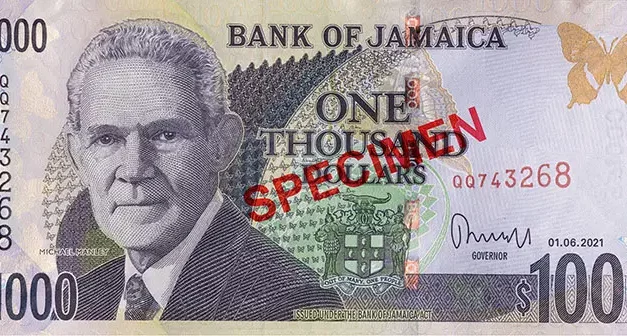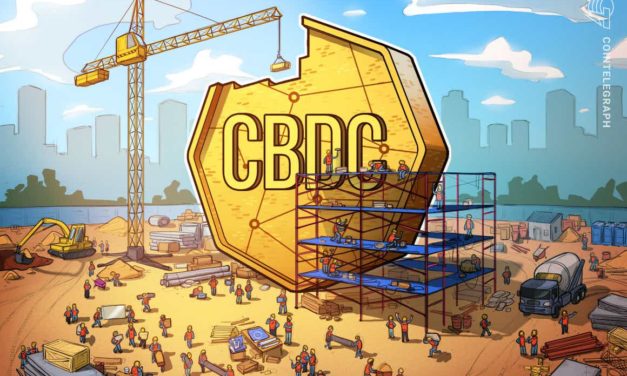Jamaica’s central bank digital currency and the problems it hopes to solve
The Central Bank of Jamacia recently announced that it would be launching its central bank digital currency (CBDC), dubbed the Jamaican Digital Exchange, or Jam-Dex, in the first quarter of 2022. According to the Jamaican government, the national digital currency will help to lower transaction costs while allowing the unbanked to access financial services.It is estimated that over 17% of Jamaicans are unbanked, but it is feared that many more are underbanked. This is largely due to systemic financial sector impediments. High transaction costs, in particular, are a huge limitation. Consequently, many Jamaicans believe that banks are a preserve of the rich.That said, internet penetration in Jamaica boasts impressively at over 55%, while mobile phone usage is at 100%. The Jamaican government is banking on these positive technological dynamics to catalyze the adoption of its national digital currency.As things stand, the Jamaican banking sector is highly centralized. Two banks dominate over 60% of the nation’s entire banking sector. The situation has brought healthy competition and led to the compounding of retrogressive oligopoly issues such as high interest rates.Jamaican banks have also hiked up transaction fees which “penalise depositors for having monies in the bank,” according to local Member of Parliament Fitz Jackson. The Jamaican government seeks to subvert these suppressive financial service trends by introducing the Jam-Dex digital currency. It will help devolve the country’s financial system away from the control of monopolistic banking giants.Uptake in the next couple of yearsOver 70% of the Jamaican population is expected to take up the new digital currency within the next five years. The country’s central bank, the Bank of Jamaica, is hoping to replace at least 5% of Jamaican dollars in circulation each year for the next couple of years.The establishment has hailed Jam-Dex as a solution to greater transparency. All transactions done on the Jam-Dex network including government welfare payments will be traceable to enhance accountability.The Jamaican central bank recently issued a total of around six million Jamaican dollars, or $44,000, to two major banks to carry out real-world testing of the Jam-Dex network before its official debut.Customers looking to use Jam-Dex will be required to sign up for a digital wallet and make a deposit via an accredited Jamaican financial institution.Problems facing the unbanked in JamaicaDue to their avoidance of regulated financial institutions, many unbanked Jamaicans miss out on progressive socio-economic opportunities. Some government and nonprofit assistance programs, for example, make use of regulated financial institutions to distribute monetary aid. Because the unbanked lack bank accounts, many of them are left out.Speaking to Cointelegraph, Daniel Polotsky, the founder of CoinFlip, the largest Bitcoin (BTC) ATM network in America, said:“Users looking to open traditional bank accounts undergo tedious approval processes and usually expose themselves to potential overdraft fees or other hidden expenses that they often cannot afford to pay.” Another problem that the unbanked face is the reliance on exploitative credit sources. Many of them are likely to take out payday loans due to a lack of access to formal credit institutions. Payday loans are incredibly expensive to finance. 1,000 Jamaican dollar banknote featuring former Prime Minister Michael Norman Manley. Source: Bank of Jamaica.Many Jamaicans are hooked on such services because the loans are easy to access, especially during emergencies. This ultimately leads to a vicious borrowing cycle.The lack of a credit history among the unbanked in Jamaica further contributes to their economic segregation. Credit history is typically needed by employers, insurance companies and landlords when making assistance and compensation considerations. Because unbanked individuals rarely have these records, they cannot get the help they need.Many unbanked people also lack substantial savings and when they do, they keep the funds in unsafe places, usually at home. This makes the money more susceptible to risks such as theft.The Jamaican CBDC aims to provide financial services to the unbanked, helping them overcome many of the aforementioned problems.Greater inclusion with a CBDCThe Jamaican digital currency is set to have a disruptive effect on Jamaica’s financial sector, particularly for its unbanked citizens. The financial inclusion of unbanked Jamaicans calls for the implementation of a radical financial system that promotes inclusivity, and Jam-Dex has the necessary properties needed to achieve this.Polotsky highlighted the importance of such CBDCs:“Central Bank digital currencies like Jamaica’s are an important step in building widespread familiarity around digital currencies. They also allow underbanked and unbanked individuals the opportunity to digitally hold and send cash for a lower fee than traditional banks, which can be crucial. While they won’t replace cryptocurrencies, these currencies can seamlessly co-exist in our digital world.”He also explained that the new Jamaican digital currency would help popularize the use of prime deflationary cryptocurrencies such as Bitcoin, which are typically used to hedge against inflation. Using the digital currency would enable relevant government agencies to monitor purchases of subsidized goods and detect pricing anomalies.Setting consumer prices and countering price gougingThe rollout of the Jamaican digital currency will enable the government to counter price cartels, especially in instances where there is a need to regulate prices. Such scenarios usually occur when government subsidies cover certain products.In recent years, Jamaican legislators have had to move swiftly to enact laws preventing the price cartels, especially in times of calamity. Price gouging in the nation is particularly rampant during the hurricane season when opportunistic traders hike the prices of building materials such as lumber, tarpaulin and zinc sheets.During the onset of the COVID-19 pandemic, disinfectants, hand sanitizers and masks were targeted by Jamaican price-gouging cartels forcing the government to intervene. Fines of up to 2 million Jamaican dollars, or $13,066 at the time of writing, were imposed on retailers found to be price gouging.Of course, verifying each reported price gouging case is a time-consuming process. The Jamaican digital currency will make it easier for the authorities to verify such reports by analyzing point-of-sale records on the blockchain.Countering money launderingJamaica had a Basel AML Index score of 5.77 in 2021. The nation’s index has been on a downtrend since 2017. The current rating means that Jamaica is highly prone to money laundering and terrorist financing schemes. The composite index score considers numerous factors including the nation’s corruption levels, its financial standards, adherence to the rule of law and political disclosure.In 2020, Jamaica was added to the European Union’s blacklisted countries after the EU found that Jamacia’s Anti-Money Laundering (AML) protocols were lacking.The country was also included in the Financial Action Task Force gray list, a move that led to Jamaican merchants and clients being blocked from transacting on major international retail platforms.The introduction of the Jamaican digital currency is expected to improve transaction transparency and help the nation overcome its current AML issues.More effective monetary policiesThe rollout of the Jamaican digital currency will enable the country’s central bank to track transactions with an aim to improve monetary policies.The central bank, for example, would be able to establish overall credit scores compared to debt when formulating relevant regulatory rules.James Bond Beach in Oracabessa. CBDC surveillance will also help the authorities crackdown on businesses involved in tax evasion schemes. This is thanks to Jam-Dex’s transaction traceability.The Jamaican digital currency is bound to bring many benefits to the Caribbean island nation. Still, its adoption is likely to take a long time due to resistance by politicians and a population that is apprehensive of government surveillance.A section of politicians has already accused the Jamaican government of bribery after it recently announced a 2,500 Jamaican dollars incentive to the first 100,000 Jam-Dex users.Full adoption of the Jam-Dex digital currency is expected to take several years due to teething problems.
Čítaj viac







